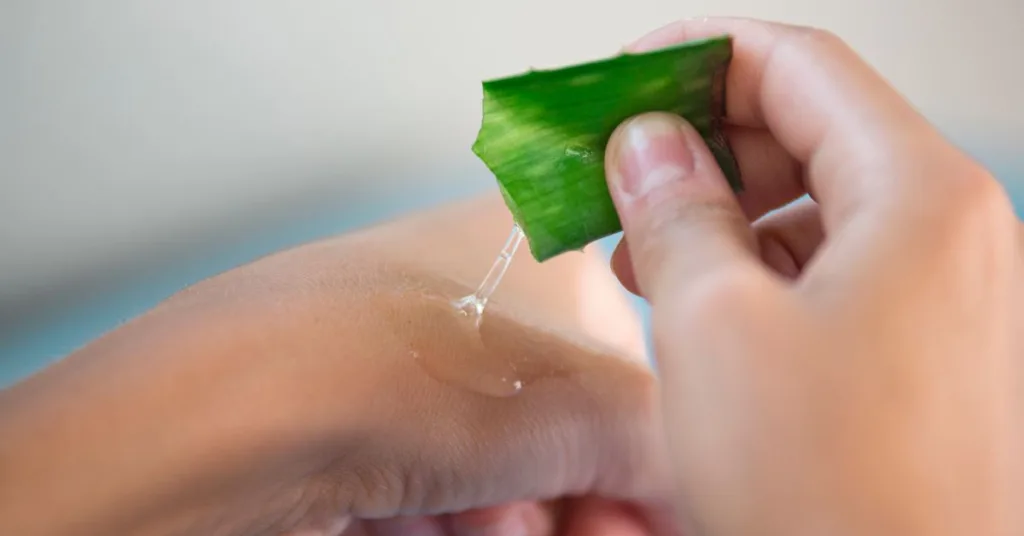Yes, toothpaste can help boils. Boils are caused by bacteria and the toothpaste’s fluoride will kill the bacteria. The toothpaste will also help to dry out the boil.
If you have a boil, you may be wondering if toothpaste can help. The short answer is yes, toothpaste can help boils in a few ways. First, the menthol in toothpaste can help to soothe the pain and itchiness associated with boils.
You can apply a small amount of toothpaste directly to the boil or put some on a cotton ball and hold it against the boil for a few minutes. Second, toothpaste can help dry out the boil, which will eventually cause it to heal. Be sure to use plain white toothpaste – avoid any that are gel-based or have other added ingredients.
Can toothpaste help boils?
Vicks for Boils
Vicks for Boils? You Bet!
If you’re like most people, when you think of Vicks Vaporub, you probably think of colds and coughs.
But did you know that this popular product can also be used to treat boils? That’s right – Vicks can help bring those pesky boils to a head so they can be drained and healed.
Boils are caused by bacteria that gets deep into your skin.
They usually start out as small, red bumps but can quickly grow larger and become quite painful. Once the boil is big enough, it will fill with pus and eventually burst open. This can often lead to infection if not treated properly.
So how does Vicks work on boils? The main ingredient in Vicks is eucalyptus oil, which has both anti-inflammatory and antibacterial properties. When applied directly to the affected area, it can help speed up the healing process by drawing out the pus and bacteria.
Additionally, the menthol in Vicks provides a cooling sensation that can help ease pain and discomfort.
To use Vicks for boils, simply apply a generous amount of ointment to the affected area up to three times per day. You should start seeing results within a few days as the boil begins to drain on its own.
However, don’t try to pop or squeeze the boil as this could spread infection. If your boil doesn’t seem to be improving after a week of treatment or if it starts oozing pus, see your doctor as you may need antibiotics.
How to Ripen a Boil Quickly
Most people don’t know that you can actually ripen a boil quickly. Here’s how: 1. Start by boiling water and then pour it into a bowl. 2. Next, add in 1/4 cup of baking soda and mix well. 3. Carefully place the affected area into the bowl of hot water and baking soda mixture. 4. Allow the boil to soak for about 30 minutes or until it begins to soften and swell up. 5. Finally, apply a warm compress to the area for an additional 10-15 minutes to help draw out the pus and bacteria.
Home Remedies for Boils in Private Area
If you’re dealing with a boil in your private area, there are a few home remedies that can help. Boils can be uncomfortable and even painful, so it’s important to treat them as soon as possible. Here are a few home remedies for boils in the private area:
– Apply a warm compress to the affected area. This will help draw the boil to the surface and speed up the healing process. – Take a sitz bath.
This involves sitting in a tub of warm water for 20 minutes or so. It can help reduce swelling and pain associated with the boil. – Apply an antibiotic ointment to the boil.
This will help prevent infection and speed up healing time.
Vaseline for Boils
If you have ever had a boil, you know how painful they can be. Boils are caused by bacteria that gets under the skin and cause an infection. The infection causes the area to fill with pus and can be extremely painful.
Traditional treatment for boils includes lancing the boil and draining the pus. This can be a very painful process and often leads to scarring. Vaseline can be used as an alternative treatment for boils.
It may seem counterintuitive to put Vaseline on a wound, but it actually helps to draw out the pus and speed up healing. To use Vaseline for boils, simply apply it to the affected area several times a day. You will need to continue this treatment until the boil has completely healed.
While Vaseline is generally safe to use, there are some precautions you should take. If you are allergic to petroleum products, do not use Vaseline as it could cause a serious reaction. If you have diabetes or poor circulation, consult your doctor before using Vaseline as it could make these conditions worse.
What is Your Body Lacking When You Get Boils
If you’re someone who gets boils, you may be wondering what exactly they are and what causes them. Boils are usually small, red, pus-filled lumps that form under the skin. They can occur anywhere on the body but are most common on the face, neck, armpits, buttocks, and thighs.
Boils develop when a hair follicle or sweat gland becomes infected with bacteria. The infection begins deep within the skin and eventually works its way to the surface. There are several things that can put you at risk for developing boils.
If you have diabetes or a weakened immune system, you’re more likely to get them. Other risk factors include poor hygiene, tight clothing that doesn’t allow your skin to breathe, and exposure to contaminated surfaces. So what is your body lacking when you get boils?
Most likely, it’s one of two things: either nutrients or hydration. When your body isn’t getting enough of either of these things, it becomes more susceptible to infection. That’s why it’s important to eat a balanced diet and drink plenty of fluids if you want to avoid getting boils.
If you do find yourself with a boil (or multiple boils), there are some home remedies that can help speed up the healing process: – Apply a warm compress to the affected area for 10-15 minutes several times a day – Soak in a warm bath for 20 minutes once or twice a day
– Gently cleanse the area with antibacterial soap – Avoid picking at or popping the boil as this can spread infection.
Credit: www.youtube.com
Does Toothpaste Get Rid of Boil?
There are a lot of home remedies out there for treating boils, and one of the most commonly recommended treatments is to put toothpaste on it. But does toothpaste actually help get rid of boils?
The short answer is that there is no scientific evidence to support the claim that toothpaste can help treat or get rid of boils.
However, some people swear by this method, so it may be worth a try if you’re looking for a simple and inexpensive way to treat your boil.
Toothpaste works as a drying agent, so it may help to dry out the boil and speed up the healing process. It’s also thought to have antibacterial properties that could help prevent the boil from getting infected.
If you decide to give this method a try, be sure to use plain white toothpaste (not gel) and apply it directly to the boil. You can leave it on for several hours or overnight before washing it off with warm water. Repeat this process until the boil goes away.
What Draws Out a Boil?
A boil is a skin infection that starts in a hair follicle or oil gland. At first, the skin around the infected area looks red and swollen. Then, a pus-filled bump forms. The bump might break open and drain pus. Aboils usually occur on the face, neck, armpits, shoulders, or buttocks. Factors that may contribute to developing boils include:
– Having close contact with someone who has a boil – Being in crowded places – Having poor hygiene
– Living with poor sanitation – Having certain health conditions like diabetes or a weakened immune system There are several ways to treat boils.
Smaller boils can be treated at home with heat application and drainage. Larger boils may require antibiotics or surgery.
How Do I Get Rid of a Boil Quickly?
There are a few things you can do to get rid of a boil quickly. First, you can try applying a warm compress to the area for 20 minutes three times a day. You can also try over-the-counter medications like ibuprofen or acetaminophen to help with pain and inflammation.
Finally, make sure you’re keeping the area clean and dry to prevent further infection. If the boil doesn’t go away after a week or two, or if it begins to drain pus, you should see your doctor for treatment.
How Do You Get Rid of a Boil Overnight?
A boil is a skin infection that starts in a hair follicle or oil gland. Boils are also called furuncles. They can occur on the face, neck, armpits, buttocks, and thighs — anywhere there’s a pocket of trapped sweat or dead skin cells.
A small bump forms first. It may be red and firm or pus-filled. The bump grows larger and harder as it fills with pus until it becomes painful to touch.
At this stage, it’s called a carbuncle if it’s large or involves several interconnected bumps. Most boils eventually rupture and release their pus, which drains out through the open wound left behind. This typically happens within two weeks without treatment.
However, you can take measures to speed up the healing process and reduce your discomfort: Apply warm compresses to the boil for 10 to 15 minutes three to four times per day until it opens up and drains on its own. Keep the area clean by gently washing it with an antibacterial soap each time you apply a warm compress; then dry thoroughly afterwards.
Apply an over-the-counter antibiotic ointment to the wound once the boil has opened up and drained.
Take ibuprofen (Advil) or another pain reliever as needed for discomfort. Drink plenty of fluids throughout the day so you don’t become dehydrated.
. Avoid sharing towels or other personal items with anyone while you have a boil. Don’t pick at or try to pop your boil yourself; this can lead to infection. Gently massage any tender lymph nodes in the area (these are often swollen when you have a bacterial skin infection). This will help promote drainage of both the boil and any associated lymph nodes.
Conclusion
If you have a boil, you may be wondering if toothpaste can help. The answer is yes, but only if used in combination with other treatments. Boils are caused by bacteria that infect an area of the skin.
The infection causes the area to become red and swollen. As the infection grows, the area fills with pus and becomes even more painful. Toothpaste can help because it contains menthol which has antibacterial properties.
When applied to a boil, it can help reduce the pain and swelling. It is important to note that toothpaste should not be used as a sole treatment for boils. Boils need to be treated with antibiotics in order to fully eliminate the infection.


